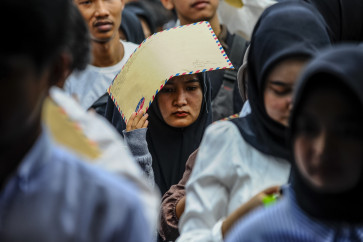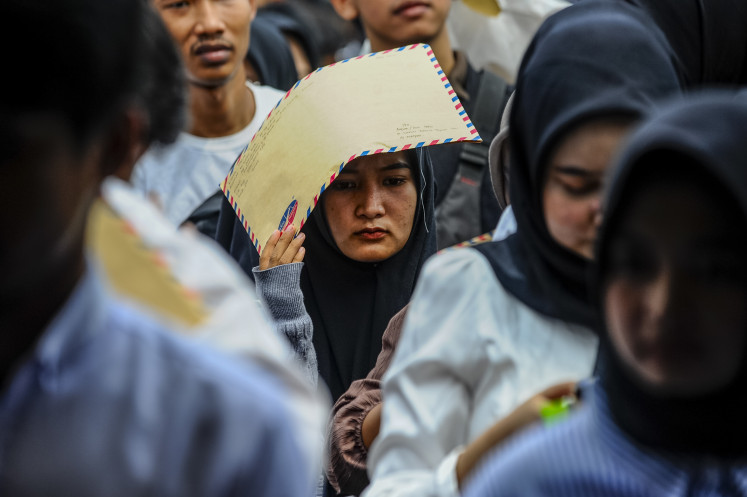Presidential regulation seen necessary to speed up ISPO certification
As the effort to promote sustainable palm oil production through the Indonesian Sustainable Palm Oil (ISPO) standards continues at a snail’s pace, officials and business players have highlighted the importance of a stronger regulation to enforce them
Change text size
Gift Premium Articles
to Anyone

A
s the effort to promote sustainable palm oil production through the Indonesian Sustainable Palm Oil (ISPO) standards continues at a snail’s pace, officials and business players have highlighted the importance of a stronger regulation to enforce them.
With the exception of four farmers’ associations, 342 out of around 1,200 palm oil companies have received sustainability certificates, accounting for 2.04 million hectares of oil palm plantations nationwide out of a total 14.03 million ha.
The urgency to speed up ISPO certification is driven by an external push, with the local palm oil industry facing international criticism over the environmental damage it has allegedly caused.
Both government officials and industry players agreed that one of the solutions was to issue a presidential regulation (PP) to strengthen the ISPO scheme, which is currently codified under an agriculture ministerial decree.
“We are being challenged on a global stage,” Musdalifah Machmud, undersecretary for food and agriculture at the Office of the Coordinating Economic Minister, said during a recent discussion on ISPO. “The Agriculture Ministry will not be able to face that alone.”
She added that the issuance of a presidential regulation that covers multiple ministries involved in the palm oil industry, including the Environment and Forestry Ministry, Agrarian and Spatial Planning Ministry, and Manpower Ministry, would enhance inter-ministerial coordination, which could speed up the certification process.
Musdalifah further said the Office of the Coordinating Economic Ministry had finished drafting the PP and it was expected to be passed before the end of the first half of this year.
In order to receive ISPO certificates, companies and plantations must undergo an audit that encompasses seven principles and criteria, with a particular emphasis on the plantations’ legal status and compliance with existing Indonesian laws.
Agriculture Ministry director general for plantation marketing and processing, Dedi Junaedi, said the main hurdle that slowed down ISPO certification was its requirement for plantations to have land with a “clean and clear” status to gain right-to-cultivate land licenses (HGU).
However, in reality, many Indonesian oil palm plantations are located in protected forestry areas and thus, are unable to obtain certificates without clearance from the Environment and Forestry Ministry and Agrarian and Spatial Ministry.
“The ISPO committee has found that a number of palm oil companies that already have HGUs are still located within designated forestry areas, and are therefore ineligible for certification,” Dedi said. “I hope that through the upcoming presidential regulation, there will be harmonization that can help end these disputes, because otherwise, 2.7 million ha of plantations will be located in forestry areas.”
Kacuk Sumarto of the Indonesian Palm Oil Producers Association (Gapki) echoed Dedi’s sentiment, saying that the ISPO’s legality principle was the only one that industry players took issue with.
“We have no problem with the rest of the principles. It’s just the legal aspect that gives us headaches,” he said.
Kacuk bemoaned the lack of coordination among government agencies on the matter, saying that they often issued new regulations that contradicted existing ones.
“We have found that several plantations that already have HGUs are said to be located on protected forestry areas, even though they have been there decades, before the forestry areas were designated,” he said. “So did the plantations encroach on forests, or did forests encroach on plantations?”
Kacuk added that Indonesia’s palm industry was facing a crisis due to international pressures and the government needed to seriously look into accelerating ISPO certification in order to overcome them.
“Gapki fully supports the strengthening of ISPO,” he said. “We should consider ISPO as a war emergency, which should be handled directly by the commander-in-chief, which is the president.”









